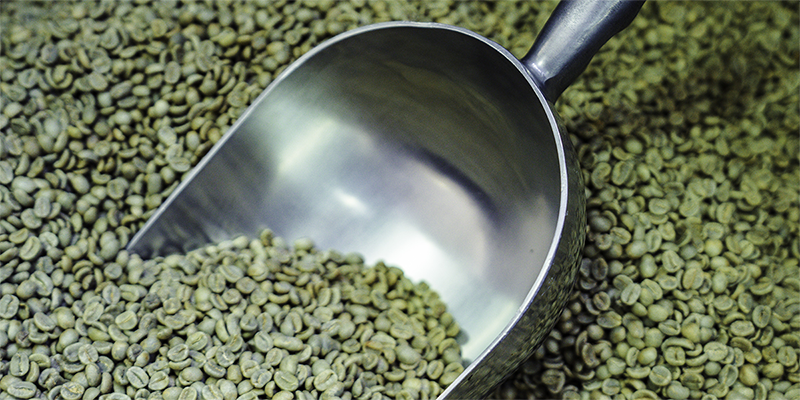
Unlocking the Secrets of Green Coffee Beans
Share
Unlocking the Secrets of Green Coffee Beans
For home coffee roasters, understanding the journey green coffee beans undergo is essential to appreciating the complex flavors in every roast. The unroasted green beans are the foundation of all great coffee, and their journey from farm to cup involves several key processes. In this blog post, we'll explore the natural and washed processing methods, examine yields from roasting, and define what makes coffee "Specialty Grade." We'll also highlight the significance of Organic Certification and touch on how altitude influences coffee quality.
Natural vs. Washed Process
The method of processing green coffee beans significantly impacts the final taste of your coffee. The two primary methods are natural and washed processes:
-
Natural Process: Also known as dry processing, this method involves drying the entire coffee cherry in the sun. The beans are left inside the fruit, allowing them to absorb flavors from the cherry's pulp. This process often results in a sweeter and fruitier cup with distinct berry notes. It's a traditional method, especially popular in regions with abundant sunlight, such as Ethiopia and Brazil. Those that prefer Natural process coffee enjoy the interesting and unique flavour notes these coffees can provide.
-
Washed Process: In contrast, the washed process, or wet processing, involves removing the cherry pulp before drying the beans. This method emphasizes the bean's intrinsic qualities rather than the fruity flavors of the cherry. It typically produces a cleaner, brighter cup with more pronounced acidity. This process is prevalent in regions like Colombia and Central America, where water is more readily available. Proponents of Washed coffee prefer the clean flavours that this process delivers.
Yields from Roasting
Roasting green coffee beans is a transformative process that significantly reduces their weight. On average, green beans lose about 15-20% of their weight during roasting due to the evaporation of moisture. This weight loss translates to a yield of approximately 80-85% of the original weight. This means you would expect to yield around 800 g of roasted coffee from every 1 kg of green unroasted beans.
High Grown Coffee
Altitude plays a crucial role in the development of coffee beans. Coffee grown at higher altitudes, typically above 1,200 meters above sea level (MASL), tends to produce beans with more complex flavors and higher acidity. This is because higher altitudes result in cooler temperatures, which slow down the maturation process of the coffee cherries. This slower development allows the beans to develop denser and more nuanced flavor profiles. For example, many Specialty coffees from regions such as Colombia and Ethiopia are grown at high altitudes, resulting in their renowned brightness and flavor complexity.
What is Specialty Grade Coffee? Does it Matter?
Specialty grade coffee refers to beans that score 80 points or above on a 100-point scale by certified coffee tasters (Q Graders). These beans are free from primary defects and possess unique flavor profiles, superior sweetness, acidity, and body. Specialty grade coffee is often, but not always, sourced from single-origin farms, promoting traceability and consistency. The meticulous care taken in growing, harvesting, and processing these beans results in an exceptional coffee experience.
The Importance of Organic Certification
Organic certification is a testament to sustainable and environmentally friendly farming practices. Coffee certified as Organic is grown without the use of synthetic pesticides or fertilizers. This certification ensures that the coffee is produced in a manner that promotes ecological balance and conserves biodiversity. Furthermore Organic coffee is not allowed to be treated with Methyl Bromide at the New Zealand border (Methyl Bromide Fumigation is banned in many countries, however in NZ this remains the default practice in treating uncertified coffees where any pest is detected at border). For consumers, choosing certified Organic coffee means supporting healthier farming practices and potentially enjoying a cleaner, more natural cup of coffee.

